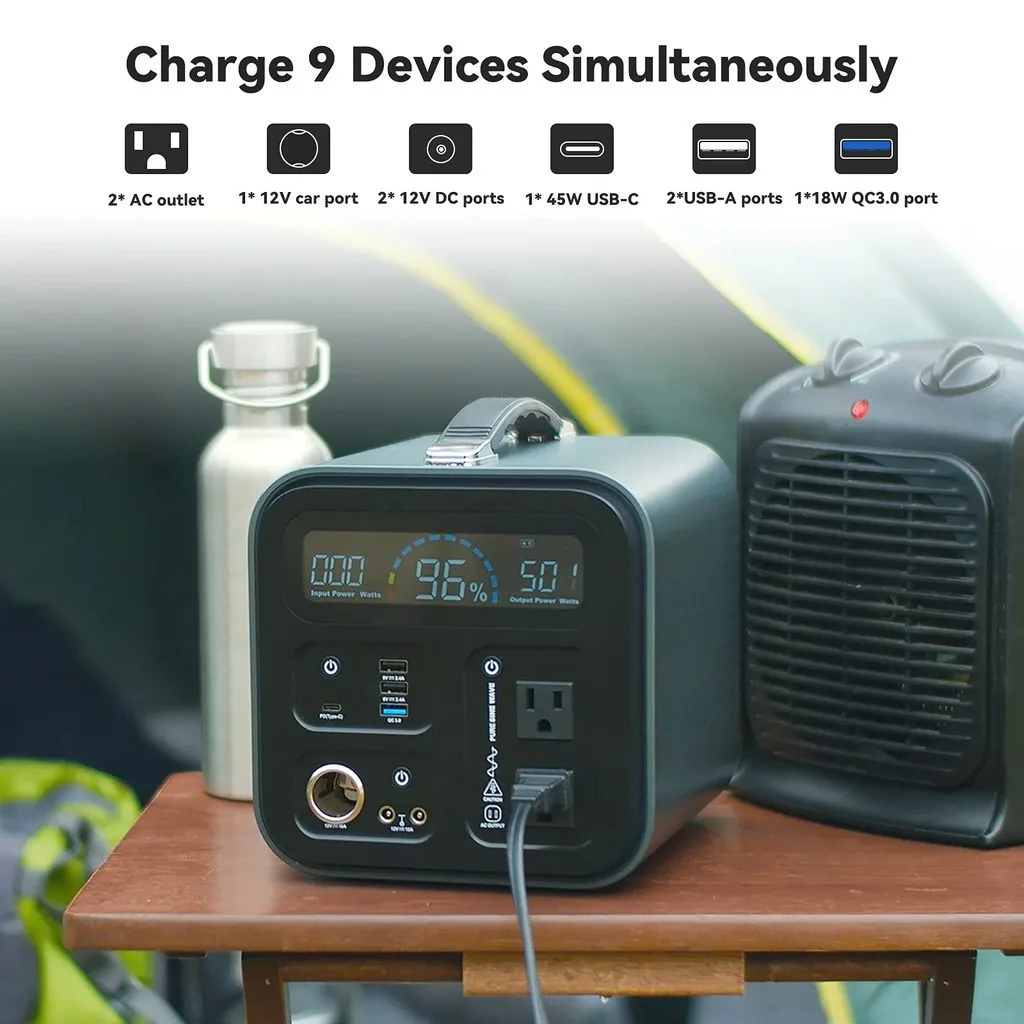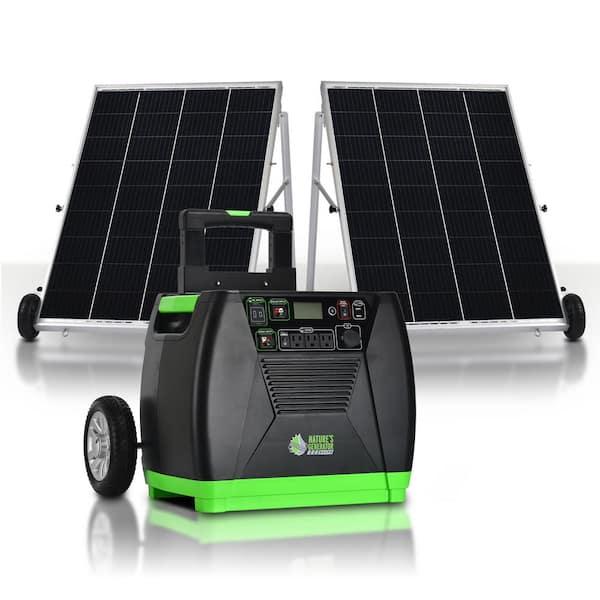-
Shop
- Advanced Technologies
- Auto
- Bathroom
- Clothing & Accessories
- Electronics
- Fashion
- Fashion Accessories
- Festive
- Furniture
- Furniture & Decor
- Gadgets
- Health & Beauty
- Home & Garden
- Home Electronics
- Kids & Babies
- Kitchen
- Lighting
- Patio, Lawn & Garden
- Pet Supplies
- Pets
- Sport
- Sport & Outdoors
- Spring Fashion Pack
- Stores
- Super Deals
- Tools & Equipment
- Travel & Outdoors
- Video Games
- Popular
- Best deals
Solar Generators: The Future of Clean Energy


Solar Generator
Introduction
As the world increasingly shifts towards sustainable energy, solar generators have emerged as a crucial component in the clean energy landscape. These innovative devices not only provide a reliable source of power but also minimize our carbon footprint. Whether you’re camping in the great outdoors, preparing for emergencies at home, or looking to reduce your electricity bills, solar generators offer an effective solution.
In this comprehensive guide, we will explore what solar generators are, how they work, their benefits, practical tips for use, and real-world applications. By the end, you’ll have a clear understanding of why solar generators are gaining popularity and how they can improve your lifestyle.
What is a Solar Generator?
A solar generator is a portable system that harnesses energy from the sun and converts it into usable electricity. Typically, it consists of three main components:
-
- Solar Panels: Capture sunlight and convert it into electricity.
-
- Battery Storage: Stores the energy generated for later use.
-
- Inverter: converts the stored energy from DC (Direct Current) to AC (Alternating Current) for powering home appliances.
How Does a Solar Generator Work?
Solar generators work through a straightforward process:
-
- Sunlight Absorption: Solar panels collect sunlight and convert it into electricity.
-
- Storage: The electricity is channeled into a rechargeable battery for storage.
-
- Powering Devices: when needed, the inverter converts the stored DC power into AC power, allowing you to run various devices and appliances.
Types of Solar Generators
Solar generators are available in various types, including:
-
- Portable Solar Generators: Compact and easy to transport, ideal for camping or outdoor activities.
-
- Home Solar generators: Designed for household power needs and often integrated with the home energy system.
-
- Heavy-Duty Solar Generators: Capable of powering larger appliances and tools, suitable for construction sites or RVs.
Benefits of Solar Generator
Solar generators present a plethora of benefits, making them an attractive option for many:
1. Sustainability
-
- Reduced carbon footprint
-
- Utilizes renewable energy
2. Cost Savings
-
- Low operational costs
-
- Decrease dependence on the grid
3.Portability
-
- Easy to transport for camping, outdoor events, or emergency situations
4. Reliability
-
- Provides backup power during outages
-
- Can run multiple devices simultaneously
5. Low Maintenance
-
- Minimal upkeep compared to traditional generators
Practical Tips for Using Solar Generators
To maximize the effectiveness of your solar generator, consider the following tips:
1. Choose the Right Size
-
- Assess your power needs and select a generator with appropriate capacity.
-
- Use a wattage calculator to estimate power requirements for your devices.
2. Optimal Setup
-
- Place solar panels in direct sunlight for maximum energy absorption.
-
- Keep the panels clean and free from obstructions like leaves or dirt.
3. Monitor Battery Levels
-
- Regularly check battery capacity and ensure they are adequately charged.
-
- Avoid deep discharging to prolong battery life.
4. Use Energy-Efficient Devices
-
- Opt for energy-efficient appliances to extend runtime.
5. plan for Storage
-
- Have a dedicated space for storing and charging your solar generator.
Case Studies: Real-World Applications
Case Study 1: Emergency Preparedness
A family living in a hurricane-prone area invested in a solar generator for emergency preparedness. During a recent storm, they experienced a power outage lasting three days. Thanks to their solar generator, they were able to power essential appliances like their refrigerator and medical devices, ensuring safety and comfort throughout the ordeal.
Case Study 2: RV Living
An avid RV traveler equipped their vehicle with a portable solar generator. This allowed them to camp off-grid without reliance on campground electrical hookups. They could run their lights, refrigerator, and entertainment systems, while also enjoying the serene beauty of nature.
First-Hand Experience
Having used a solar generator for camping trips, I found it to be a game-changer. Setting it up was easy, and I could charge my devices while enjoying outdoor activities. After a long day, gathering around the campfire with lights and music powered by the generator was delightful. With no noise or fumes, it considerably enhanced our camping experience.
Comparing Solar Generators: A Quick Overview
Here’s a simplified comparison table of various types of solar generators available on the market:
| Generator Type | Capacity (Wh) | Portability | Best For |
|---|---|---|---|
| Portable Solar Generator | 300 - 600 | Very High | Camping, Outdoor Activities |
| Home solar Generator | 1000 – 3000 | Low | Home Backup Power |
| Heavy-Duty solar Generator | 3000+ | Low | Construction Sites, RVs |
Conclusion
In a world that increasingly prioritizes sustainability, solar generators are not just a trend but a practical solution to energy needs. They provide reliable, renewable energy that can be utilized in various situations, whether you’re at home, on the road, or preparing for emergencies.
By understanding the features, benefits, and practical applications of solar generators, you can make an informed decision about incorporating this technology into your life. As we continue to innovate and adapt, solar generators will undoubtedly play a significant role in powering our future sustainably.
If you’re considering a solar generator, take the time to assess your needs and explore the options available. The journey toward clean energy starts with informed choices—make yours today!



















Leave a comment